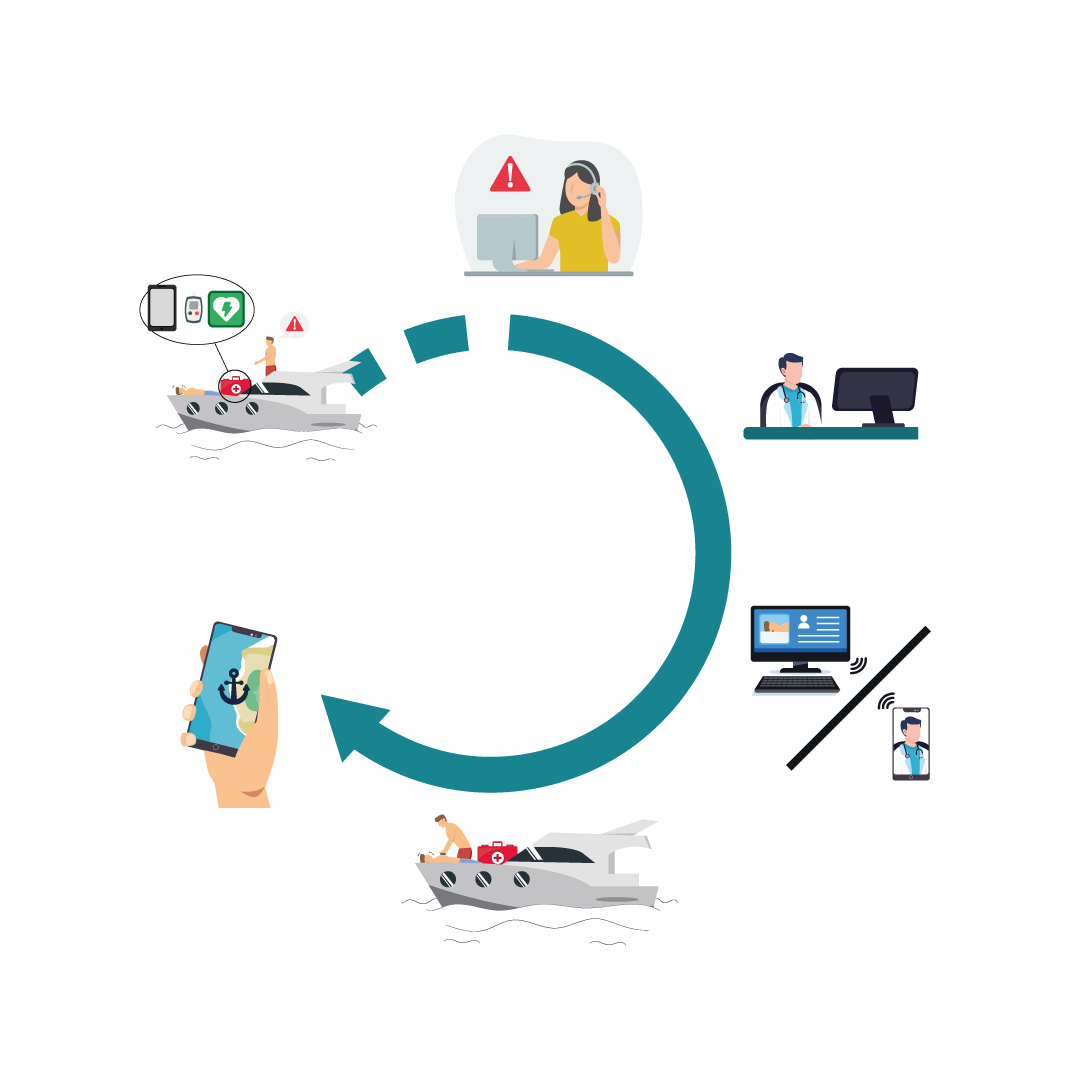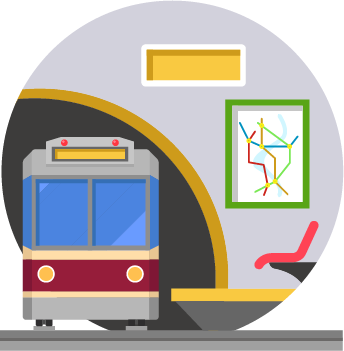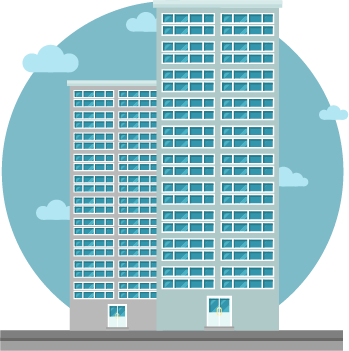
Remote First AID
The Remote First AID centralized Service Center manages emergency calls and forwards requests for assistance to a Medical Center active 24 hours a day, 7 days a week which will provide support to help the person in difficulty and to carry out a first level diagnosis via teleconsultation. Through a video connection, the medical staff will be able to see the patient on the screen. The system, also, interfaces with local electro-medical kits distributed to affiliated users. This kit consists of a set of biomedical sensors capable of detecting vital parameters such as body temperature, blood oxygenation and blood pressure, heart rate, body position, respiration, and ECG. The person offering assistance will be able to use various diagnostic tools guided by the doctor. The system finally guides the user through a map to the nearest location on land. Communications between the remote station and the Service Center are designed to function via satellite connection and/or 4G-5G networks.

How it works
The Remote First AID centralized Service Center manages emergency calls and forwards requests for assistance to a Medical Center active 24 hours a day, 7 days a week which will provide support to help the person in difficulty and to carry out a first level diagnosis via teleconsultation. Through a video connection, the medical staff will be able to see the patient on the screen. The system, also, interfaces with local electro-medical kits distributed to affiliated users. This kit consists of a set of biomedical sensors capable of detecting vital parameters such as body temperature, blood oxygenation and blood pressure, heart rate, body position, respiration, and ECG. The person offering assistance will be able to use various diagnostic tools guided by the doctor. The system finally guides the user through a map to the nearest location on land. Communications between the remote station and the Service Center are designed to function via satellite connection and/or 4G-5G networks.
The advantages of the solution
Immediate and targeted intervention in case of emergency
The ability to receive immediate medical consultation during an emergency is crucial in situations where time is a determining factor. When a person becomes ill and is on a sailing vessel, reaching a healthcare facility can take hours. The Remote Emergency Room system allows for the timely intervention of expert doctors who can assist remotely in real time. This significantly reduces waiting times for life-saving first aid, preventing the patient’s condition from worsening.
Timely management of critical situations in difficult to reach places
In places that are difficult to reach, providing aid can become a serious problem that endangers people’s lives. If action is not taken promptly, health conditions can worsen rapidly. Thanks to continuous monitoring and the possibility of communicating with a doctor via video call, the staff on board the yacht or other rescuers can intervene with precise instructions. The doctor can offer suggestions based on the patient’s real-time condition, optimizing the management of critical situations until arrival at a healthcare facility.
Real-time sharing of vital parameters and instrumental tests
The Remote First AID system interfaces with the onboard electro-medical kits to monitor vital parameters (such as blood pressure, oxygenation, and electrocardiograms). This data is transmitted in real time to the medical professionals team at the service center. This means that by the time of arrival at the hospital, the medical professionals already have crucial information allowing them to intervene immediately with an informed diagnosis.
Video consultations and remote interventions by specialists
The presence of specialists who can provide assistance via video call represents a huge added value, especially in emergency situations that require specialized skills (such as a cardiologist in the case of a heart attack or a neurologist for a stroke). This approach facilitates immediate and targeted intervention, reducing the risk of errors or delays, and ensuring that even the most complex situations are managed by qualified personnel in real time.
Highly reliable 5G connection capable of ensuring timely communications
The adoption of a highly reliable 5G connection allows the transmission of critical medical data without delays or interruptions, improving the efficiency of emergency responses. Thanks to the continuous transmission of vital parameters and diagnostic indications, upon arrival at the hospital, the doctors already have all the necessary information. This accelerates the start of necessary medical treatment, further reducing response times and improving the chances of successful outcomes.




